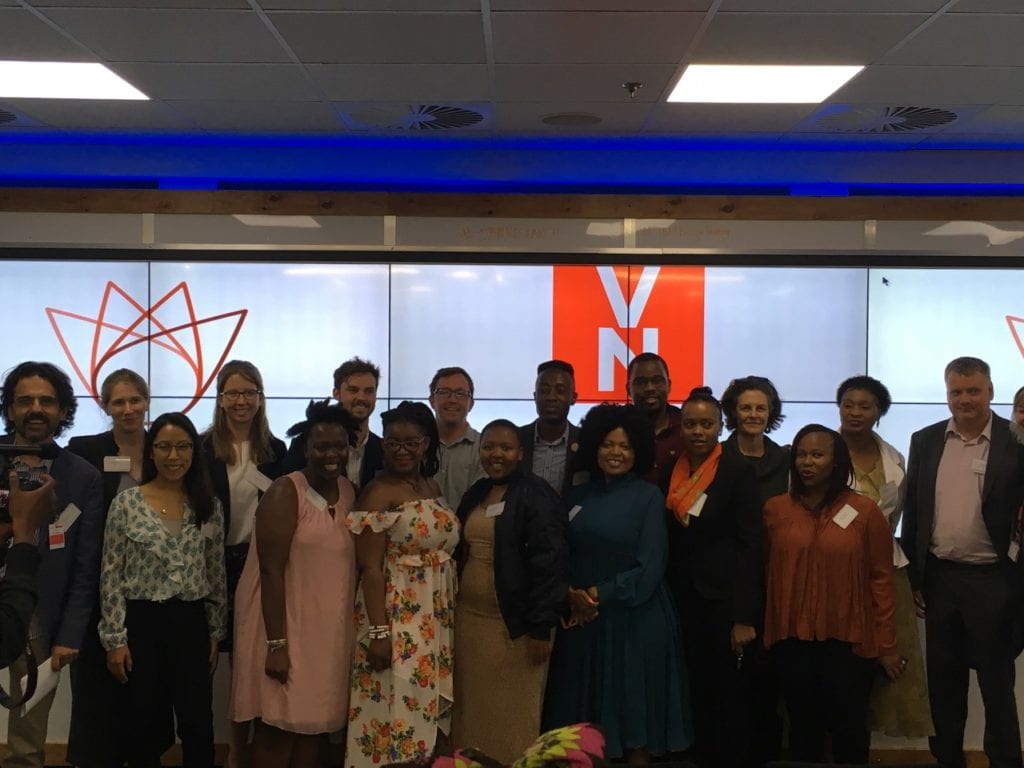
The first cohort of JAMLab teams smile after presenting their ideas at “Demo Day’. Teams are joined by Lab Director Indra de Lanerolle and JHR’s Rachel Pulfer and Hannah Clifford (back row, far left).
For 15 years, JHR has worked around the world to ensure reporters and citizen journalists have the skills they need to objectively and effectively report on issues affecting their communities and hold duty bearers accountable — especially young, emerging journalists. In that time, JHR has seen that an independent media that serves its democratic purpose is only possible when it is able to sustain itself. Yet, it is becoming increasingly difficult in today’s disrupted & digital age.
To consider new ideas in media JHR launched, in partnership with the University of the Witwatersrand and Ryerson University, the Journalism and Media Lab (JAMLab) this year.
Six teams of young South African journalists and media entrepreneurs worked to imagine new ideas in media, how to reach new audiences and, sustain themselves. To date, three of the six have received funding to continue their work from the South Africa Media Innovation Fund. Rachel Pulfer, Executive Director JHR says “All winning projects are designed to ensure voices of women, girls, township dwellers, and those too-often excluded from coverage in South Africa take their rightful place in the public conversation there.”
The three winning teams work on diverse issues that affect young people such as setting up a financially viable radio and digital platform for women (Soul City), connecting freelance journalists in underreported parts of the country with national newsrooms while improving coverage in rural areas (Media Factory) and delivering local news in local languages through community radio (Volume News).
Lebo Ramafoko of Soul City says, “Winning confirms that there is a need for a platform for women who are tired about the injustices they face daily and to do something about it. Soul City will run Not Yet Uhuru Radio on a digital platform, aim to refine their concept, attract advertisers and develop the long-term financial viability of the radio station.
Media Factory, led by Nelisa Ngqulana, aims to link national newsrooms with freelancers in under-covered parts of the country. The goal is to improve coverage of the country outside the metropoles, and to create better income opportunities for journalists in smaller cities, towns and rural areas.
The third team to be awarded a SAMIF grant is Volume News, a startup led by Paul McNally and Roland Perold. It is already delivering local news in local languages to more than 100,000 listeners on community radio stations. Their goal is to grow that to nine million listeners.“This gives us an opportunity to make an even bigger impact on the independent media landscape in South Africa,” says Perold. “We will use the funding to roll out our product to more radio stations and increase our audience, and further improve and develop our suite of products.”


